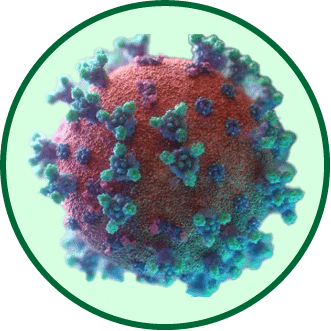Nutrition for Sustained Energy: Mastering the Balance of Macros and Micros
Introduction:
In the quest for sustained energy and vitality, nutrition plays an indisputable role. Our bodies, complex systems that they are, require a diverse range of nutrients to function optimally. Understanding the delicate balance between macronutrients and micronutrients is key to unlocking sustained energy levels and overall health. This comprehensive guide will explore the synergistic role of macros and micros in energy management, offering insights into strategic nutrition choices that can power your day from sunrise to sunset.
1. Unpacking Nutritional Science: Macros vs. Micros
- Defining the Terms: Macronutrients (macros) include carbohydrates, proteins, and fats, which are consumed in large quantities and are the primary energy sources. Micronutrients (micros), comprising vitamins and minerals, are required in smaller amounts but are crucial for various bodily functions, including energy production and metabolism regulation.
- The Energy Equation: While macros contribute to immediate and sustained energy supply, micros facilitate the body's processes that convert these nutrients into usable energy.
- Keywords: carbohydrates, proteins, fats, vitamins, minerals, energy production, metabolism regulation, usable energy.
2. Carbohydrates: The Body’s Preferred Energy Source
- Complex vs. Simple: Complex carbohydrates (found in whole grains, vegetables, and legumes) provide a steady energy release, while simple carbohydrates (found in sugar and refined foods) offer quick, yet short-lived, energy spikes.
- Fiber Factor: Dietary fiber, a type of complex carbohydrate, aids in stabilizing blood sugar levels, preventing the energy highs and lows associated with sugar consumption.
- Optimal Intake: Incorporating a balanced mix of complex carbohydrates in each meal can contribute to sustained energy throughout the day.
- Keywords: complex carbohydrates, simple carbohydrates, steady energy, dietary fiber, blood sugar levels, balanced mix.
3. Proteins: Building Blocks for Body and Energy
- Sustained Release: Protein has a slower digestion rate, providing a more sustained form of energy and aiding in the feeling of fullness.
- Essential Amino Acids: These protein components are crucial for repairing body tissues and maintaining muscle mass, which in turn supports steady energy levels.
- Quality Sources: Opt for lean proteins (like poultry, fish, legumes, and nuts) to support energy levels without excessive saturated fat intake.
- Keywords: slower digestion, sustained energy, essential amino acids, lean proteins, muscle mass, saturated fat.
4. Fats: Supporting Energy and Nutrient Absorption
- Long-term Fuel: Fats, particularly unsaturated fats, provide a dense source of energy and are essential for the absorption of fat-soluble vitamins.
- Omega-3 Fatty Acids: These fats, found in foods like oily fish and flaxseeds, support cognitive function and energy production.
- Moderation is Key: While vital for health, fats are calorie-dense, so they should be consumed in moderation.
- Keywords: long-term fuel, unsaturated fats, fat-soluble vitamins, omega-3 fatty acids, cognitive function, moderation.
5. Micronutrients: Small but Mighty Energy Enablers
- B Vitamins: Essential for converting food into energy, B vitamins (found in whole grains, meat, and dairy) help sustain energy production.
- Iron: This mineral is crucial for oxygen transport in the blood, supporting energy levels and combating fatigue.
- Magnesium and Zinc: These minerals play vital roles in energy metabolism and protein synthesis, respectively.
- Adequate Intake: A varied diet rich in fruits, vegetables, lean proteins, and whole grains can help ensure you’re getting a broad spectrum of micronutrients necessary for optimal energy.
- Keywords: B vitamins, iron, oxygen transport, magnesium, zinc, energy metabolism, protein synthesis, varied diet.
6. Hydration: The Overlooked Energy Source
- Water is Essential: Even mild dehydration can lead to significant drops in energy levels, highlighting the importance of regular water intake.
- Electrolytes: These micronutrients, including sodium, potassium, and chloride, are crucial for maintaining proper hydration and muscle function, thus supporting energy levels.
- Keywords: hydration, dehydration, water intake, electrolytes, muscle function.
Conclusion:
Sustained energy emerges from a well-rounded nutritional approach that honors the roles of both macronutrients and micronutrients. By understanding and implementing the principles of balanced nutrition, individuals can create a diet that fuels their daily activities and supports overall well-being. It's not about quick fixes, but rather establishing long-term dietary patterns that provide a steady stream of energy. For personalized advice, individuals should consult with a registered dietitian or healthcare professional to address their unique nutritional needs and health goals.
(Note: This article is intended for informational purposes only and does not constitute medical advice.)
Keywords: well-rounded, nutritional approach, balanced nutrition, daily activities, long-term dietary patterns, registered dietitian, healthcare professional, unique nutritional needs.
